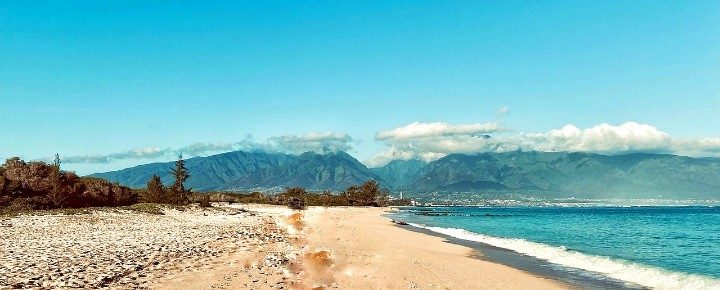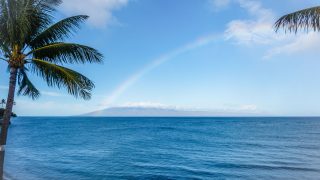Hawaii has identified the first probable case of monkeypox. It’s said to be a Hawaii resident who returned from travel to an area with confirmed cases. The person is currently hospitalized in stable condition. More details have not been provided.
Testing was confirmed as completed by the state laboratory. Further testing by the U.S. Centers for Disease Control and Prevention (CDC) will be completed next week.
The state said “Monkeypox does not spread easily from person to person, and the risk remains low for most Hawaiʻi residents. DOH continues case investigation and is coordinating with federal authorities to ensure that Hawaiʻi has the resources we need to prevent and treat monkeypox infection.”
Should Hawaii travelers be concerned?
The CDC just updated its travel advisory for monkeypox as cases continue to rise. While the risk to the public and travelers is still considered low, the CDC asked that travelers “practice enhanced precautions” and avoid close contact with sick people.
The travel advisory was increased from level 1 (watch) to level 2 (travel should be on alert). Should it be raised again, it’d be to level 3, indicating recommended avoidance of nonessential travel.
Before Hawaii, California and Florida announced three cases in each state, plus two in Colorado, two in New York, and two in Utah. Massachussets,Virginia and Washington have each identified one case.
The World Health Organization said “the situation is evolving rapidly and WHO expects that there will be more cases identified as surveillance expands in non-endemic countries, as well as in countries known to be endemic who have not recently been reporting cases.” WHO continues to believe, however, that it won’t become a widespread pandemic.
Symptoms include:
Swollen lymph nodes
Fever
Migraines/headaches
Chills
Exhaustion
Rash
Backache
Muscle aches
Travelers can protect themselves against infection by taking the following steps.
Here’s what CDC says to do when traveling to avoid infection.
It includes avoiding close contact with those who are sick or have a rash, and generally the precautions associated with avoiding Covid and other diseases.
Does this seem eerily familiar. It reminds us of when we first started hearing about Covid.
We still remember hearing it wasn’t going to be a pandemic. Until it was. We surely hope this is nothing like that.
Get Breaking Hawaii Travel News







Stay safe…. we should sit inside our homes for 2 weeks.. that should work
There are a few key differences between COVID and monkey pox that make monkey pox much less dangerous. First, COVID was a new disease. Monkey pox is not. It’s new to regions outside part of Africa, but the disease itself has been known for a long time. Second, there’s already a vaccine: the smallpox vaccine will also prevent monkey pox. So if monkey pox begins to spread beyond a handful of cases, people can be vaccinated relatively quickly. And those of us old enough to have been vaccinated against smallpox are already protected. That elderly population was amongst the groups hardest hit by COVID. So please, let’s not get unduly alarmed (or alarmist). This really isn’t as bad as COVID.
Dear BoH, Thank you for keeping us informed. We’re definitely in a global society with viruses spreading quickly. The commentators on this article continue to amaze me as it appears that they’ve forgotten that the Hawaiian Islands are 2500 miles from the US mainland. Medical resources should be for the residents and the occasional tourists., not the other way around.
Mahalo
My only questions is when do I see a MonkeyPox stimulus check and how much will it be for?
Seriously almost everyone who brings up MonkeyPox kiddingly and sometimes not asks if we’re getting a check.
Stop drumming up hysteria!
Mahalo Beat of Hawai’i for this information.
I’m just not believing the situation.
Yes, it absolutely reminds me of the Coronavirus.
Lately it seems it’s always something getting in the middle of life as we knew it.
Stay safe and stay blessed.
Aloha always 🌺
Hi Pam.
Great to hear from you. Thanks for your thoughts. While a totally different disease, it brings with it a similar shock value as we try to return to some normalcy.
Aloha.
I get so tired of the fear tactics. I guess since Covid is winding down (with a few exceptions) it is time to try to scare everyone again with a new ailment. The governments of the world found out how easy it was to take absolute control over the entire population of their respective countries and now it is just going to be one medical scare tactic after another. Keep the people living in fear and you can control the world. When and if the time comes for a real medical disaster, no one is going to pay attention to a word the WHO or any government officials tell them. This is a dangerous game of crying wolf.
Sorry, I don’t believe in conspiracy theories.
While your piece claims …”this seem eerily familiar. It reminds us of when we first started hearing about Covid.” this virus is nothing like the virus in transmission nor the symptoms.
The primary means of transmission thus far (according to the WHO) is through gay sexual encounters. If you want to draw a correct parallel in terms of preventable diseases, this most closely resembles AIDS, not the virus.
The obvious means to prevent contracting this ‘new’ virus is to avoid casual contact with random partners you hook up with at festivals and bars. Problem averted.
Article states, “…It reminds us of when we first started hearing about Covid.” That could mean other things, eg: It started far away, and now it’s here. According to Harvard:
How does a person get monkeypox?
Typically, this illness occurs in people who have had contact with infected animals. May follow a bite or scratch, or consuming undercooked animal meat.
Virus can spread between people in 3 ways:
1.Inhaling respiratory droplets
2.Directly touching an infected person
3.Less often, through indirect contact such as handling an infected person’s clothing.
The respiratory route involves large droplets that don’t linger in the air or travel far. As a result, person-to-person spread typically requires prolonged, intimate contact.
you can google how you can possibly get monkeypox, stop the fear factor here!
Deb, the authors are “informing” you. It’s up to you if you feel threatened by that information. Stop trying to control the release of information that others consider important knowledge. There is nothing “scary” about this information, unless it scares You. Don’t speak for the rest of us.
This is what the issue is , just like others mentioned
“Does this seem eerily familiar. It reminds us of when we first started hearing about Covid.
We still remember hearing it wasn’t going to be a pandemic. Until it was. We surely hope this is nothing like that.”